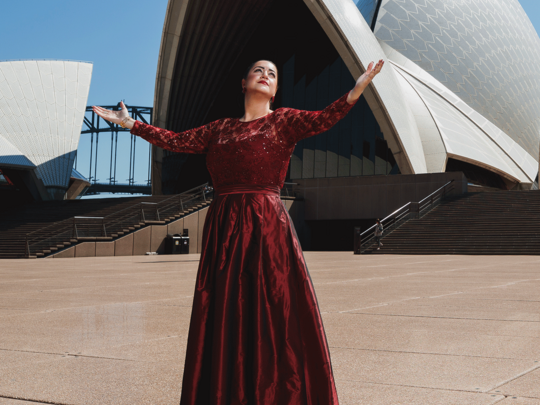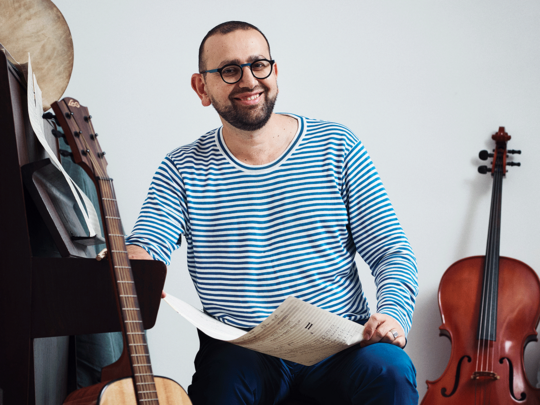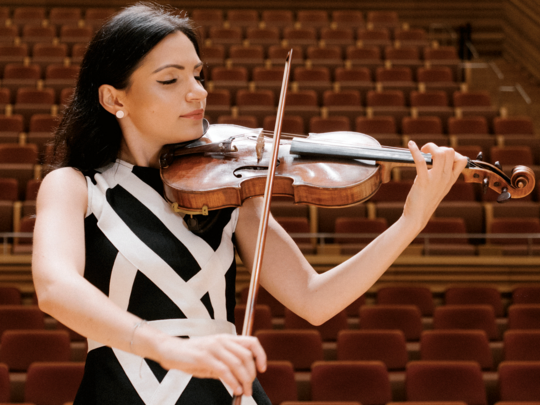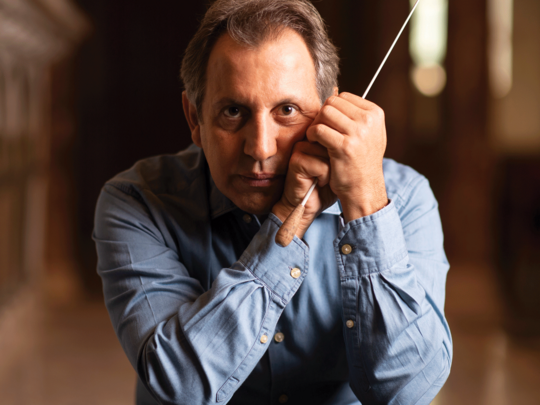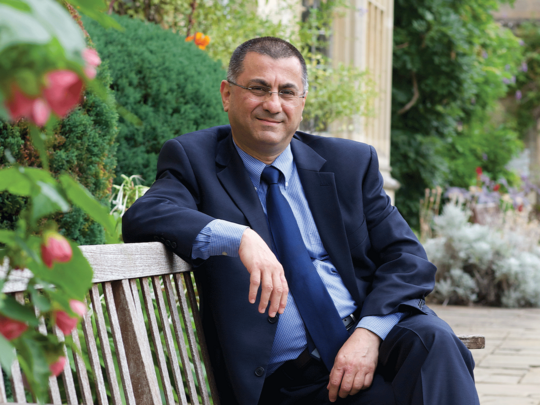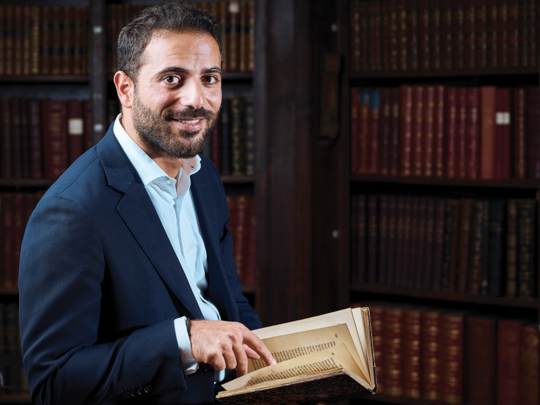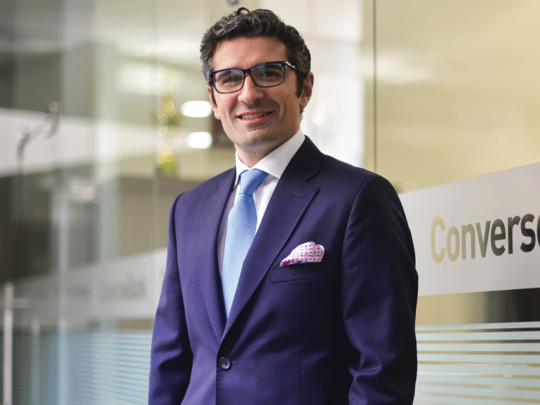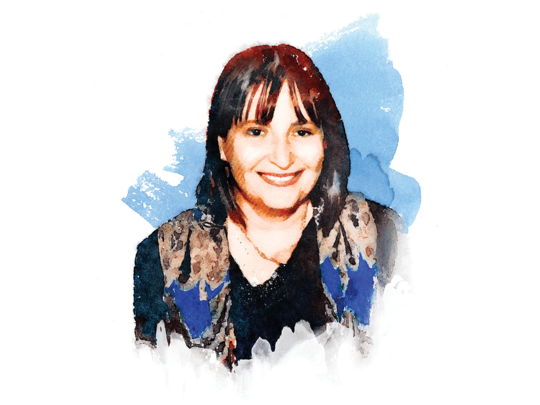On a bitterly cold night in January 1989, a newborn baby was found on the windowsill of an abandoned hospital in the city of Vanadzor in Armenia. One month earlier, the infamous Spitak earthquake had ravaged the northern part of the country, which continued to suffer destructive aftershocks long after the initial quake. It was during one of these tremors that the nurses and doctors working in the hospital in Vanadzor had fled for their lives, inadvertently leaving behind a baby girl. When she was spotted hours later—surrounded by shards of glass from the shattered window panes—the child was frozen to the bone, having endured subzero temperatures. Doctors told her parents there was no hope for her, that they should consider her yet another casualty of the already devastating earthquake. But her parents did not give up on the little girl so easily. By treating her with herbs and daily massages, they slowly saw their daughter regain her strength and ultimately have the chance to discover a love for music and grow to become the world-class concert pianist Nareh Arghamanyan—the youngest student ever to study at the preeminent University of Music and Performing Arts in Vienna.
Today, Arghamanyan looks back on her first hours of life with appreciation: “I thank God for the miracle that I am alive today and that I don’t suffer any health issues as a result of being exposed to the elements at such a tender age.” But the aftermath of the earthquake would continue to have an effect on her life as a child and young adult. Vanadzor did not recover quickly from its infrastructural damage, leaving its residents without any running water or electricity for several years after the earthquake. For the budding pianist, this meant that her introduction to the piano was done by candlelight: “My first encounter with the piano was at four years old. My mother—a music lover and music school graduate herself—sat me on the piano bench and told me it was a new toy I could play with. I was immediately drawn to the sound of the instrument and started to try different ways to produce music. I was even more excited to discover different harmonies. I used to play for so long that the candle would go out and my mom would need to light a new one.”
My job is to help pull listeners into the world created by the composer and help them forget about all their problems, sorrows and pain. My job is to work miracles as a servant to the music.
Arghamanyan’s interest in music quickly gained momentum. By six, she gave her first solo recital with works by classical masters, such as Chopin and Liszt. By seven, she was accepted into the renowned Tchaikovsky Music School for Talented Children in Yerevan. That same year, Arghamanyan also took her first steps towards launching a music career beyond Armenia by competing in her first international competition in then-Yugoslavia.
It was not too long before music also took the young pianist to the United States. In 2000, at the age of eleven, she was invited to take part in the Gina Bachauer International Piano Competition in Salt Lake City. Before traveling there, Artemis Nazerian of New York, a professionally-trained pianist herself, and her daughter, current AGBU Central Board member Arda Haratunian, organized a recital for her in New York. “I had the chance to rehearse before an audience in preparation for the competition, which I ended up winning,” says Arghamanyan. “I will always be grateful to them for that important recital and for organizing several others over the next few years—as well as for introducing me to the AGBU Scholarship Program.”
Arghamanyan’s biggest leap into the international music arena came in 2004 when the fifteen-year-old was accepted into the University of Music and Performing Arts in Vienna. Despite being the youngest student in the history of the school in addition to the youngest in her class, she excelled in her studies, thanks in large part to AGBU: the only organization that helped fund her education. When she was not studying, Arghamanyan enjoyed exploring her new city, quickly developing a fondness for Viennese culture: “I really love its musicality. With such a rich culture and history and a vibrant and magnetic atmosphere, Vienna has continuously been a source of inspiration for composers, musicians, and artists alike.”
After finishing her studies in 2008, Arghamanyan settled permanently in Vienna, but is often on the road, giving recitals and participating in competitions in major cities throughout Asia, Europe and North America. With a wide repertoire list and more than 60 concerts a year, Arghamanyan is in high demand around the world, which, she says, takes a certain toll: “The life of a pianist is very emotionally and physically grueling and takes a lot of stamina. I travel every week and have ongoing projects all the time. I have to be a little like a chameleon to integrate into new environments as quickly as possible to perform at my best in very different places. I always strive to find inner peace and harmony within myself to help me deal with the unpredictability.” But all the red-eye flights and exhausting practice schedules are worth it, explains Arghamanyan, because of the opportunities for self-discovery that her career offers her: “The life of a pianist is also a life of exploration. It’s full of solitary time that triggers a better sense of self. This exploration and solitude help me see the whole picture of my inner being.”
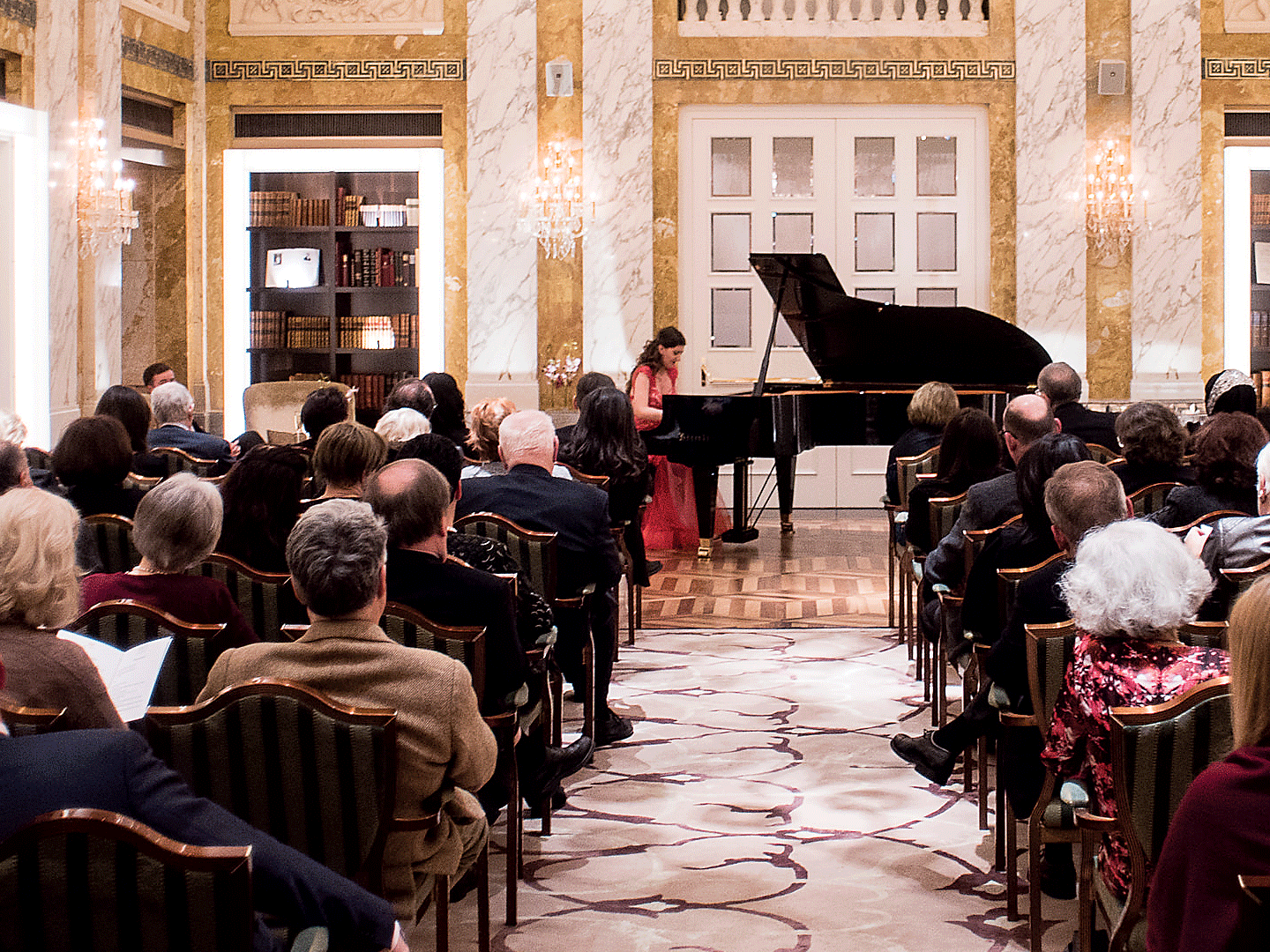
Photo by: Alexander Wieselthaler/Stills&Emotions
A deeply spiritual person, Arghamanyan also finds herself through her Christian faith. She sees her talent as a gift from God and, in gratitude, makes prayer part of her pre-concert ritual. “Before all major events in my life—like a CD release, a major competition or a concerto performance—I always go to the Saint Hripsime Armenian Church in Vienna to get a blessing from the priest. In the church, I feel very connected to my roots, to God and to my culture. It feels like home to me.” During every performance, Arghamanyan says she always feels the presence of God—a magical, inexpressible feeling that she can only describe just like “a nurturing oil flowing over the mind and heart in a holy sphere of conversation between God and the human spirit.”
Her spirituality has naturally drawn her to composers who share her faith and belief in the inextricable link between religion and art. Her favorite composers are the so-called three Bs: Bach, Beethoven and Brahms, to whom, Arghamanyan says, she will always be devoted. “Bach created a bridge between humankind and God by bringing the heavenly to the world. Beethoven was profoundly religious in his attempts to allow music to reveal the natural order of the universe,” she says. Arghamanyan goes on to say that Beethoven was deaf in later life and she feels that as he wrote his most famous pieces it was as if he “transcended the plateau of spirituality.” Lastly for Arghamanyan, Brahms reveals that everything is united and lays bare the profound structure of music in its deepest inner sense.
Reconciling the otherworldliness of music with the realities of the classical music industry today, however, has been a challenge for Arghamanyan and many other musicians in this day and age. She notes that the development of social media has resulted in a demand for quantity and a decrease in quality. Internet culture today, she says, has also caused the focus to shift from the performer’s music to the performer’s persona: “I feel that while someone could get very far with quality in the past, the requirements have since changed. Many other elements are involved in the success of a musician nowadays, such as public relations, social media and good musical agencies. In other words, a musician has to be very socially active and seek out more and more personal connections to succeed.”
Despite the realities of her field, Arghamanyan nevertheless has an undying love for her art and sees every new performance as a new journey: “I can never play something that I don’t feel in the bottom of my heart and in my conscience. The musician must sense the structure, the spectrum, the meaning and the nuances of a composition, not just the emotion it elicits. My job is to help pull listeners into the world created by the composer and help them forget about all their problems, sorrows and pain. My job is to work miracles as a servant to the music.”
Banner Photo by Julia Wesely.


